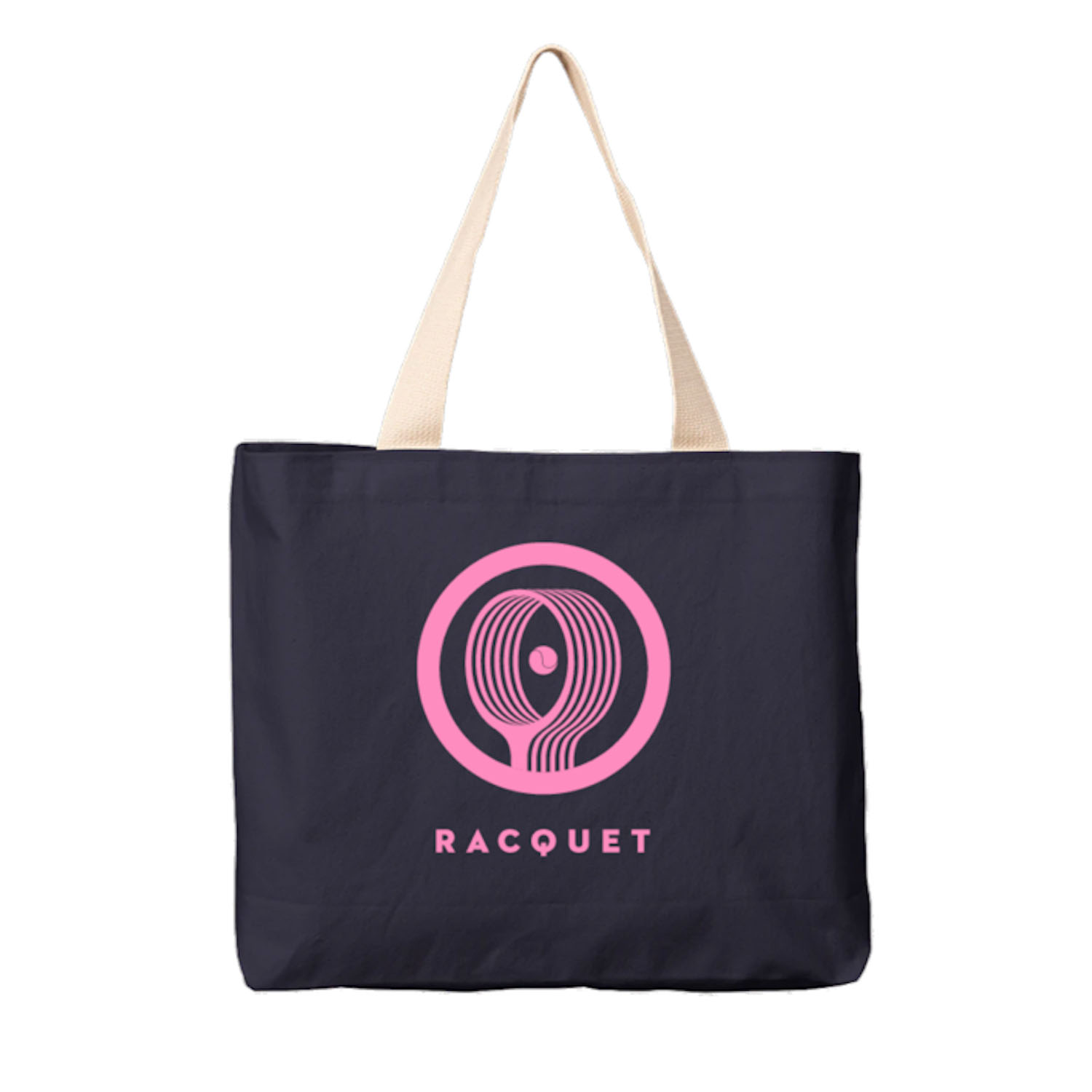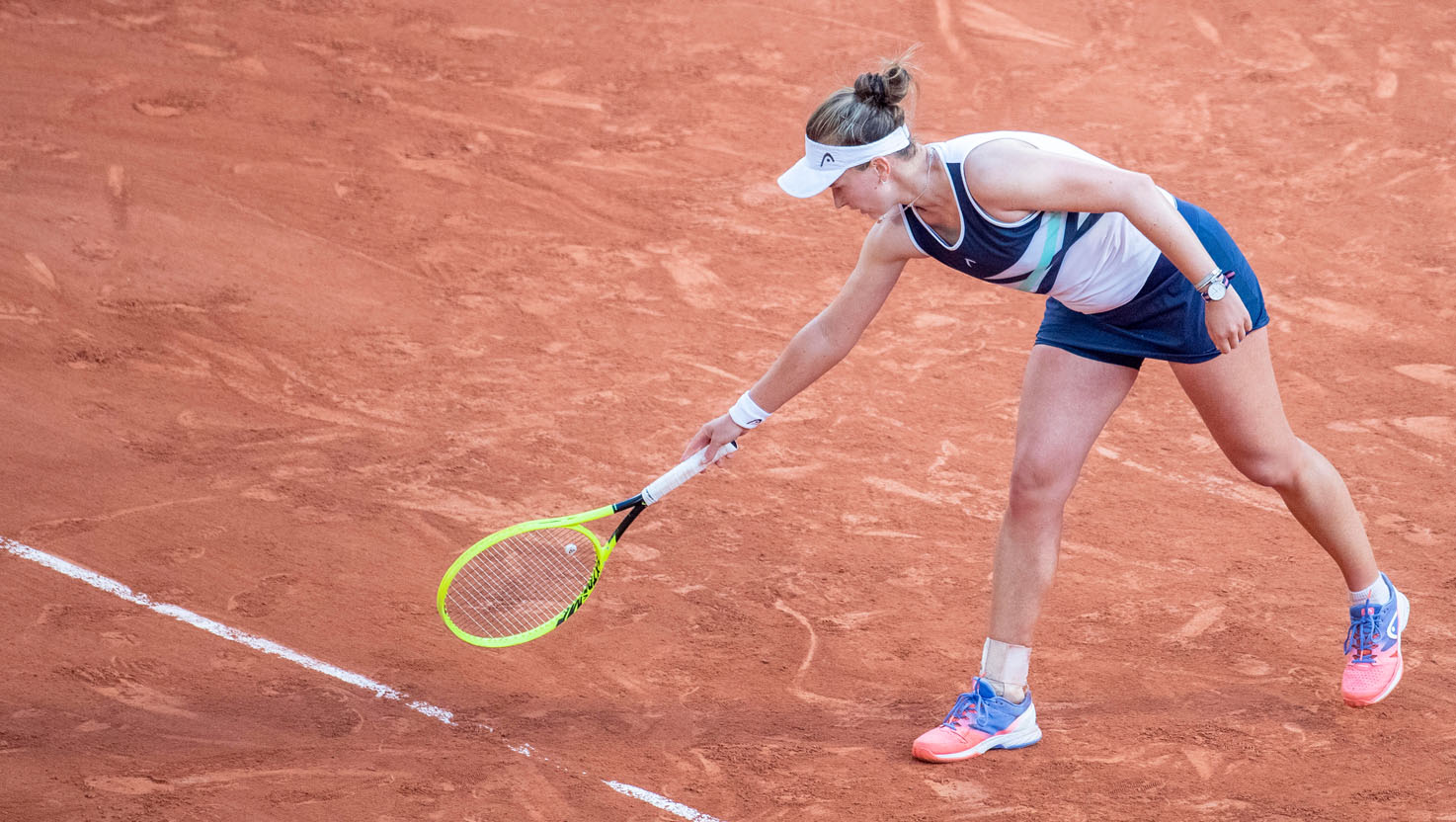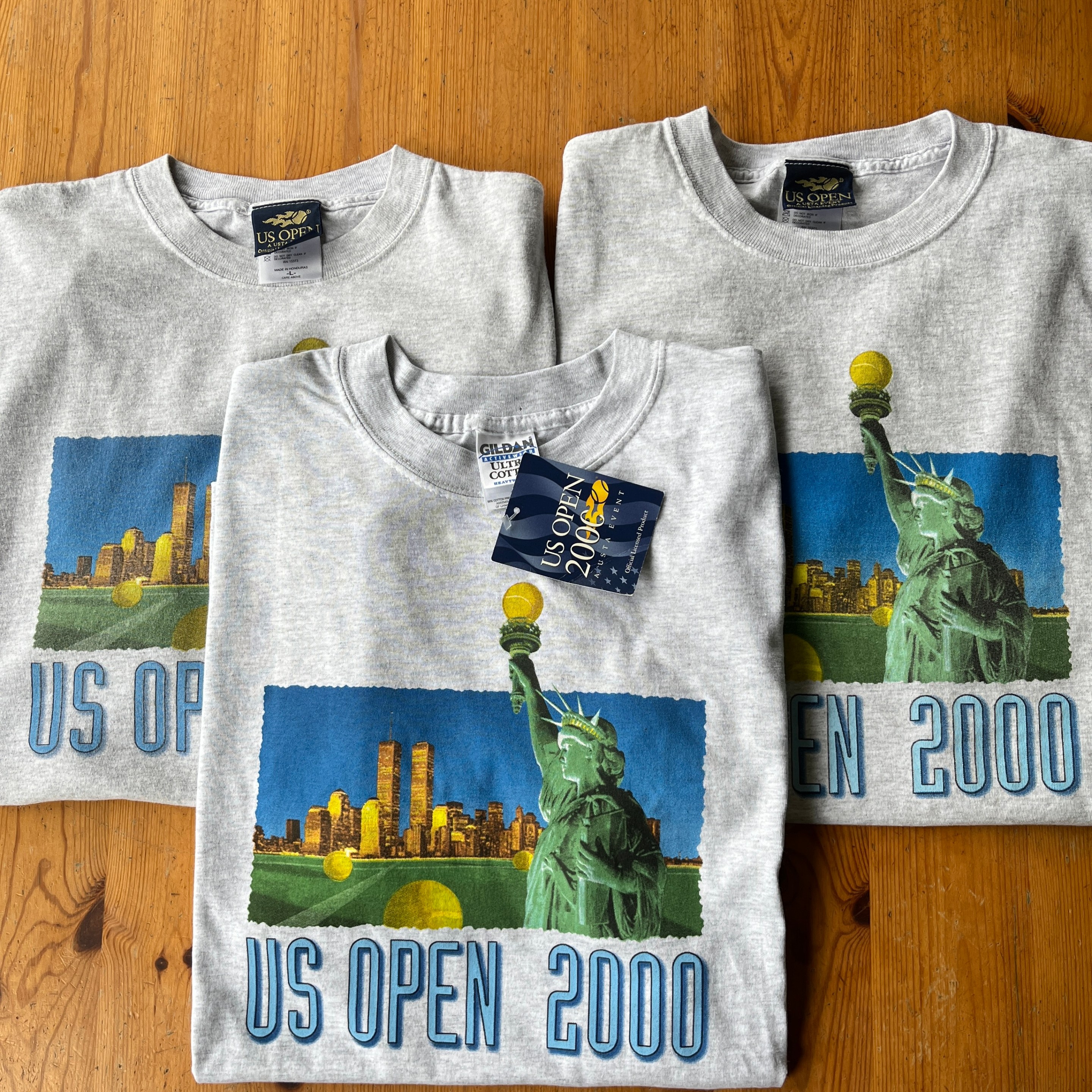[vc_empty_space height="5px"]
By Giri Nathan
[vc_empty_space height="15px"]The test of a high-drama tennis match is whether it can make even a neutral observer feel ill. I can queasily report that this standard was met by the second women’s semifinal on Thursday, which had me holding my phone in a vice grip and unable to imagine swinging a tennis racquet, which these two women continued to do despite never having played a match with these stakes before. It’s been a turbulent Roland-Garros for the women, with a slew of top seeds wiped out either before the tournament or early in it, whether by calf muscle tear (Simona Halep), hip injury (Ashleigh Barty), personal crisis after bowing out of press availability (Naomi Osaka), fluke ankle turn while participating in press availability (Petra Kvitova), or a sleeper in the draw going deep (Bianca Andreescu). This might have opened up space for some less heralded names to advance, which gave us four first-time semifinalists. Never having been there before means nerves. Nerves mean a choppy match, and often a gut-churning, captivating one.
On one side was Maria Sakkari, one of two Greeks flourishing at this French Open. Greece decided to make only two top-end tennis players—Sakkari and the singular Stefanos Tsitsipas—but they both rule. More countries should simply adopt this policy (of having zero tennis infrastructure and lucking into two geniuses born to former tennis-star mothers). Sakkari, a rippling über-athlete who, with coach Tom Hill, has fine-tuned a mediocre serve into an elite one, has looked on the verge of breakthrough for some time. All her previous Slam runs fizzled out before the second week, but this time, as the No. 17 seed, she survived. Defending champ Iga Swiatek fell in straight sets after Sakkari broke down her forehand with as straightforward and mean a game plan as you’ll ever see in a tennis match. Sakkari is not fucking around!!! She’s going to expect these deep runs from now on, and given her talent, she’d be right to.
On the other side of the net was Barbora Krejcikova, who has won a handful of Slams before but never without a trusty partner at her side. She’s reached world No. 1 in doubles, and won five doubles majors, all the more fitting because she was mentored by Czech countrywoman and Hall of Famer Jana Novotna, who dominated doubles alongside a formidable singles career. But for Krejcikova the singles success was much slower going. The 25-year-old has made it into the main draw of a major only four times before this tournament, with her fourth-round showing at last year’s French Open a career-best result, which helped her climb into the top 100. She clearly would not have been the first doubles maestro who never quite figured out how to translate those gifts into solitary mode. This year, however, she and her almost sleepily elegant ground strokes broke through. She made the final in Dubai, beating Sakkari en route, and won a title in Strasbourg right before coming to Paris as world No. 33.
These two are not the same. Sakkari got loud, roaring after every little success of her muscular tennis. Krejcikova didn’t make a peep—just a somber headshake here or there. They split sets, with momentum and quality seesawing all along, and Sakkari went up an early break in the third. Despite a chance to serve it out at 5–4, Sakkari played a game that was equal parts brilliant and sloppy—think a hard-earned short ball that was squandered after blooping a drop shot into the tape—and Krejcikova broke to stay alive. Two more holds followed, with none of the mercy of a tiebreak. Deep in the 7–6 game, Krejcikova embellished her loopy strokes into two outright moon balls, which Sakkari couldn’t handle—two match points for the Czech. Sakkari steadied herself with a backhand winner into the corner, an ace down the T, and eventually took home the game while motioning for the crowd—already one of the wildest of the season—to get even frothier. They did not know what was coming. At 8–7, down match point, Sakkari hit a ball that was called long; Krejcikova began to celebrate and encircled the mark in the clay with her racquet; the chair ump came over to inspect that mark—and overruled the call. Replay the point. Sakkari thumps it and wins. Hawkeye disagreed with the call (but we will not be opening that dialogue at this time). Just know that some points later, Krejcikova bunted a failed Sakkari drop shot into the corner of the court and won it for real. After having saved one match point, lost three of her own, seen one overturned by the ump, lost the replay, and succeeded on her fifth try, one of the most surprising major finalists in recent memory explained her monkish cool: “The thing is that I’m calm on the inside, too. I don’t get nervous. So what comes out of me is actually what is happening inside of me.” What? Considering how strung out I am just having watched it and described it in writing, I have to hand it to her.[vc_empty_space height="10px"]Above: Barbora Krejcikova examines the ball mark on match point. (Getty)[vc_column width="1/6"][vc_tweetmeme share_via="racqetmagazine"][vc_column width="1/6"][vc_facebook type="button_count"][vc_column width="1/6"][vc_column width="1/6"][vc_column width="1/6"][vc_column width="1/6"][vc_empty_space height="45px"][vc_column width="1/4"][vc_column width="1/2"]
THE PARQS & REC TOTE

[vc_btn title="GET IT NOW" style="outline" shape="square" color="success" size="lg" align="center" button_block="true" link="url:https%3A%2F%2Fracquetmag.com%2Fproduct%2Fparqs-rec-tote%2F|title:GET%20IT%20NOW||"][vc_column width="1/4"]






